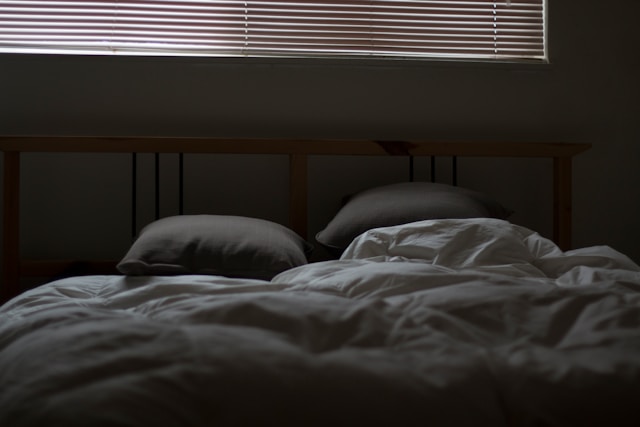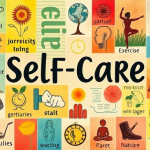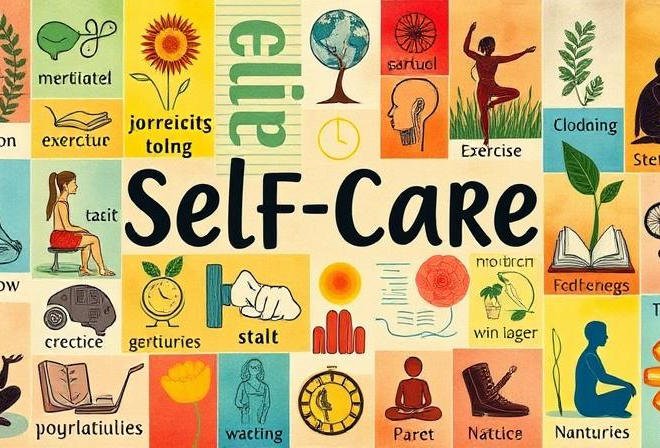
The Science of Sleep: How to Get Better Rest Every Night
The Importance of Quality Sleep
Getting adequate and quality sleep is essential for our overall health and well-being. Sleep plays a crucial role in cognitive function, mood regulation, and physical health. When we prioritize getting a good night’s sleep, we are setting ourselves up for success in all areas of our lives.
During sleep, our body undergoes important processes that help repair tissues, regulate hormones, and support immune function. Without sufficient rest, our bodies can become more susceptible to illness, increased stress levels, and cognitive impairment. Quality sleep is not just about the quantity of hours spent in bed, but also the depth and restorative nature of the sleep we experience. By valuing the importance of quality sleep, we are investing in our long-term health and overall quality of life.
Understanding the Sleep Cycle
The sleep cycle is comprised of different stages that play a vital role in overall restorative sleep. It consists of two main types: non-rapid eye movement (NREM) and rapid eye movement (REM) sleep. NREM sleep is divided into three stages, with the first two focusing on light sleep and the third stage known as deep sleep, which is crucial for physical restoration and immune function.
REM sleep, on the other hand, is where dreams occur and plays a key role in cognitive processes and memory consolidation. Throughout the night, individuals cycle through these stages multiple times, with each complete cycle lasting around 90 minutes. Understanding these sleep phases is essential for maintaining good sleep quality and overall well-being.
Factors Affecting Sleep Quality
Unsurprisingly, various factors can significantly impact the quality of our sleep. Stress and anxiety are common culprits that can disrupt our ability to attain a restful night’s sleep. Racing thoughts and elevated levels of cortisol can prevent the mind and body from winding down effectively, leading to difficulties falling asleep or experiencing uninterrupted sleep throughout the night. Additionally, environmental factors such as noise, light, and temperature can also contribute to poor sleep quality. Excessive noise or bright lights can stimulate the senses and make it challenging to achieve a state of relaxation conducive to sleep.
Furthermore, lifestyle choices, such as irregular sleep schedules or excessive screen time before bed, can interfere with our natural sleep-wake cycle. Inconsistent bedtimes can disrupt our internal body clock, making it harder to fall asleep at night and wake up feeling refreshed in the morning. Similarly, the exposure to blue light emitted from electronic devices like smartphones, tablets, and computers can suppress the production of melatonin, a hormone that regulates sleep-wake cycles, making it difficult to transition into a state of restfulness necessary for quality sleep.
Creating a Relaxing Bedtime Routine
Establishing a relaxing bedtime routine is crucial for promoting restful sleep and overall well-being. Begin by setting a consistent time to wind down each night, allowing your body to naturally prepare for rest. Engage in calming activities such as reading a book, taking a warm bath, or practicing gentle stretches to signal to your brain that it is time to relax.
Limit screen time before bedtime to reduce exposure to blue light, which can interfere with the body’s production of melatonin, a hormone that regulates sleep. Instead, opt for soothing activities that promote relaxation and help quiet the mind. Consider incorporating relaxation techniques such as deep breathing exercises or meditation to help ease into a peaceful night’s sleep. By creating a calming bedtime routine, you can improve the quality of your sleep and enhance your overall health and well-being.
The Role of Melatonin in Sleep
Melatonin is a hormone produced by the pineal gland in response to darkness, signaling to the body that it is time to sleep. This natural sleep-inducing hormone helps regulate the sleep-wake cycle, also known as the circadian rhythm. Typically, melatonin levels rise in the evening, peak during the night, and diminish in the early morning, influencing the body’s internal clock.
Factors such as exposure to light, especially blue light emitted by electronic devices, can disrupt melatonin production. When the body’s natural melatonin production is disrupted, it can lead to difficulty falling asleep or staying asleep. By understanding the role of melatonin in sleep, individuals can make lifestyle adjustments to support healthy sleep patterns and improve overall sleep quality.
Tips for Improving Sleep Environment
When it comes to optimizing your sleep environment, creating a calming atmosphere is key. Start by keeping your bedroom dark, quiet, and at a comfortable temperature to promote restful sleep. Consider using curtains or blinds to block out unwanted light and investing in earplugs or a white noise machine to drown out any disruptive sounds.
Another important aspect of your sleep environment is the quality of your mattress and pillows. Make sure your bedding is comfortable and supportive to prevent any aches or discomfort that could interrupt your sleep. Additionally, consider the use of soothing scents like lavender or chamomile to create a relaxing ambiance in your bedroom. By making these simple adjustments, you can greatly enhance the quality of your sleep environment and improve your overall sleep health.
The Effects of Blue Light on Sleep
Blue light, emitted by electronic devices such as smartphones, tablets, and computers, can have a significant impact on our sleep quality. Exposure to blue light in the evening can interfere with our natural sleep-wake cycle, also known as the circadian rhythm. This is because blue light suppresses the production of melatonin, a hormone that regulates sleep.
Research has shown that individuals who use electronic devices before bedtime tend to have more difficulty falling asleep and experience poorer sleep quality overall. The stimulation from blue light can trick our brains into thinking it’s still daytime, making it harder to wind down and prepare for sleep. To mitigate the negative effects of blue light on sleep, it is recommended to reduce screen time at least an hour before bedtime or use blue light-blocking glasses to filter out the harmful light.
Benefits of Regular Exercise for Sleep
Engaging in regular physical activity has been shown to have a positive impact on the quality of sleep. Exercise helps regulate the body’s internal clock, known as the circadian rhythm, which in turn can lead to falling asleep more easily and experiencing deeper sleep stages. Studies have indicated that individuals who are physically active tend to spend more time in restorative sleep stages, such as slow-wave sleep and REM sleep, resulting in feeling more refreshed upon waking.
Furthermore, regular exercise is associated with reducing symptoms of insomnia and sleep disorders. Physical activity can help decrease feelings of anxiety and stress, which are common contributors to sleep disturbances. By promoting overall physical health and mental well-being, exercise establishes a conducive environment for restful sleep. In addition, the release of endorphins during exercise acts as a natural mood booster, further enhancing the ability to unwind and achieve a peaceful night’s sleep.
The Impact of Diet on Sleep
A person’s diet plays a crucial role in influencing the quality of their sleep. Consuming heavy meals close to bedtime can lead to discomfort and indigestion, making it challenging to fall asleep peacefully. Certain foods such as spicy dishes or those high in fat content may trigger acid reflux, disrupting the sleep cycle. On the other hand, including light snacks that contain tryptophan, a compound that promotes relaxation and sleepiness, can be beneficial for achieving a better night’s rest.
Additionally, the timing of meals can impact the body’s natural sleep-wake cycle. Eating late at night can interfere with the release of melatonin, the hormone that regulates sleep, leading to difficulties in falling asleep and staying asleep throughout the night. It is advisable to aim for a balanced diet, incorporating foods rich in nutrients that support optimal sleep patterns. By being mindful of what and when you eat, you can create a sleep-friendly diet that enhances your overall sleep quality.
Managing Stress for Better Sleep
Managing stress is essential for improving the quality of your sleep. Stress and anxiety can greatly impact your ability to fall asleep and stay asleep throughout the night. When the mind is racing with worry and tension, it can be challenging to achieve a state of relaxation conducive to restful sleep.
One effective way to manage stress for better sleep is to practice relaxation techniques before bedtime. This can include deep breathing exercises, meditation, or gentle stretching to release physical tension. By calming the mind and body before sleep, you can create a more peaceful environment for rest and promote a sense of tranquility that aids in falling asleep easier.
The Connection Between Mental Health and Sleep
Sleep and mental health share a complex and interconnected relationship. Poor sleep can contribute to the onset and exacerbation of mental health disorders such as anxiety and depression. Conversely, individuals struggling with mental health issues often experience disruptions in their sleep patterns, leading to a vicious cycle of sleep deprivation and worsened mental health symptoms. This bidirectional link underscores the importance of addressing sleep disturbances as a crucial aspect of maintaining good mental well-being.
Research has shown that individuals with chronic insomnia are at a higher risk of developing mental health disorders compared to those with healthy sleep habits. Lack of quality sleep can impact cognitive functions, emotional regulation, and overall mental resilience. Therefore, prioritizing adequate and restful sleep is essential for nurturing a healthy mind and body. It is vital for individuals experiencing sleep disturbances to seek professional help and explore effective strategies to improve their sleep quality in order to support their mental health.
The Dangers of Sleep Deprivation
Sleep deprivation poses serious health risks that can impact various aspects of our lives. When we consistently fail to get an adequate amount of sleep, our cognitive abilities become impaired, leading to poor concentration, memory problems, and decreased productivity. Additionally, sleep deprivation has been linked to mood disorders such as irritability, anxiety, and depression, making it crucial to prioritize a good night’s rest for overall mental well-being.
Furthermore, extended periods of insufficient sleep can weaken the immune system, making individuals more susceptible to illnesses and infections. Chronic sleep deprivation has also been associated with an increased risk of developing chronic conditions like obesity, diabetes, and heart diseases. It is essential to recognize the dangers of sleep deprivation and take proactive steps to improve our sleep quality for optimal physical and mental health.
How to Establish a Consistent Sleep Schedule
Establishing a consistent sleep schedule is crucial for maintaining good sleep hygiene and overall well-being. To achieve this, it’s important to go to bed and wake up at the same time every day, even on weekends. This will help regulate your body’s internal clock, making it easier to fall asleep and wake up naturally at the desired times.
In addition to setting a fixed bedtime and wake-up time, it’s beneficial to create a relaxing pre-sleep routine to signal to your body that it’s time to wind down. This could include activities such as reading a book, taking a warm bath, or practicing relaxation techniques like meditation or gentle yoga. By consistently following these steps, you can train your body to associate these cues with sleep, improving the quality and regularity of your sleep patterns.
Natural Remedies for Insomnia
Sleep is essential for overall health and well-being, but many individuals struggle with insomnia, making it challenging to get the rest they need. While there are various medications available to help with this issue, some prefer to explore natural remedies for relief. One popular option is incorporating relaxation techniques into bedtime routines, such as deep breathing exercises or meditation, to calm the mind and body before sleep.
In addition to relaxation techniques, herbal remedies like valerian root or chamomile tea have been used for centuries to promote better sleep. These natural remedies can help induce relaxation and improve sleep quality. It’s important to remember that individual responses to these remedies may vary, so it’s helpful to consult with a healthcare professional before incorporating them into your routine.
The Benefits of Power Napping
Power napping, also known as a quick snooze or a catnap, has gained recognition for its numerous benefits in enhancing productivity and overall well-being. Taking a short nap during the day can help rejuvenate the mind and body, improving cognitive function and boosting alertness. Research suggests that a power nap of about 10 to 30 minutes can increase focus, memory retention, and creativity, making it a valuable tool for those looking to recharge and stay sharp throughout the day.
Furthermore, power napping has been found to promote relaxation and reduce stress levels. By allowing the brain to rest and reset, a brief nap can help regulate emotions and improve mood. Many individuals experience a sense of calm and revitalization after a power nap, enabling them to tackle tasks with a renewed sense of energy and efficiency. In a fast-paced world where time is of the essence, incorporating power naps into your daily routine can be a simple yet effective way to enhance mental clarity and emotional well-being.
The Role of Breathing Techniques in Sleep
Breathing techniques play a crucial role in promoting relaxation and aiding in falling asleep. By focusing on deep, slow breaths, individuals can calm their mind and body, preparing for a restful night’s sleep. Slow, deliberate breathing can help reduce stress and anxiety, which are common barriers to falling asleep. Practicing mindfulness while breathing can further enhance the effectiveness of these techniques.
Moreover, specific breathing exercises, such as diaphragmatic breathing or the 4-7-8 technique, can help regulate the autonomic nervous system, signaling to the body that it is time to unwind and prepare for sleep. Consistent practice of these breathing techniques can lead to improved sleep patterns and overall sleep quality. By incorporating simple breathing exercises into a bedtime routine, individuals may find it easier to relax and transition into a peaceful slumber.
The Effects of Caffeine and Alcohol on Sleep
Caffeine and alcohol are two common substances that can significantly impact the quality of our sleep. Caffeine, found in coffee, tea, soda, and chocolate, is a stimulant that can disrupt our natural sleep-wake cycle. Consuming caffeine, particularly in the afternoon or evening, can make it difficult to fall asleep and may also lead to fragmented sleep throughout the night. Even small amounts of caffeine can affect sensitive individuals, so it’s important to be mindful of your intake if you’re experiencing sleep disturbances.
Alcohol, often perceived as a sedative, can have negative effects on our sleep despite its initial relaxing effects. While alcohol may help some individuals fall asleep faster, it can disrupt the later stages of sleep, leading to poorer sleep quality overall. This disruption can result in more frequent awakenings during the night and a less restful slumber. It’s advisable to limit alcohol consumption, especially close to bedtime, to promote better sleep hygiene and overall well-being.
The Importance of Comfortable Bedding
When it comes to getting a good night’s sleep, the comfort of your bedding plays a crucial role. Your bed should be a sanctuary, providing a cozy and inviting environment that helps you relax and unwind after a long day. Investing in comfortable bedding, such as soft sheets, supportive pillows, and a cozy blanket, can make a significant difference in the quality of your sleep.
The right bedding can also help regulate your body temperature, keeping you cool in the summer and warm in the winter. Breathable fabrics like cotton or linen can help wick away moisture and prevent overheating, ensuring you stay comfortable throughout the night. Additionally, comfortable bedding that properly supports your body can help alleviate aches and pains, allowing you to wake up feeling refreshed and rejuvenated each morning.
The Connection Between Sleep and Productivity
Poor sleep can have a significant impact on productivity levels. When individuals do not get adequate rest, their cognitive functions can be impaired, leading to difficulties in concentration, problem-solving, and decision-making. Furthermore, tiredness and fatigue can result in decreased motivation and overall performance in both professional and personal endeavors.
On the other hand, prioritizing quality sleep can enhance productivity in various aspects of life. A well-rested individual is more likely to have improved focus, energy, and creativity. With better mental clarity and alertness, tasks can be completed more efficiently and effectively. Ultimately, establishing a healthy sleep routine can contribute to higher levels of productivity and overall well-being.
Seeking Professional Help for Sleep Disorders
Seeking professional help for sleep disorders is crucial for individuals struggling to get a good night’s rest. Sleep disorders can significantly impact one’s quality of life, leading to fatigue, irritability, and difficulty concentrating during the day. Consulting a healthcare provider specializing in sleep medicine can help identify the underlying causes of sleep disturbances and provide tailored treatment options to improve sleep quality.
These healthcare professionals may conduct detailed assessments, such as sleep studies, to diagnose specific sleep disorders like sleep apnea, insomnia, or restless leg syndrome. Treatment approaches may range from lifestyle adjustments and behavioral therapies to prescribed medications or devices, depending on the nature and severity of the sleep disorder. Seeking timely medical intervention is essential to address sleep problems effectively and enhance overall health and well-being.
• Seeking professional help for sleep disorders is crucial for individuals struggling to get a good night’s rest.
• Sleep disorders can significantly impact one’s quality of life, leading to fatigue, irritability, and difficulty concentrating during the day.
• Consulting a healthcare provider specializing in sleep medicine can help identify the underlying causes of sleep disturbances and provide tailored treatment options to improve sleep quality.
• Healthcare professionals may conduct detailed assessments, such as sleep studies, to diagnose specific sleep disorders like sleep apnea, insomnia, or restless leg syndrome.
• Treatment approaches may range from lifestyle adjustments and behavioral therapies to prescribed medications or devices, depending on the nature and severity of the sleep disorder.
• Seeking timely medical intervention is essential to address sleep problems effectively and enhance overall health and well-being.











